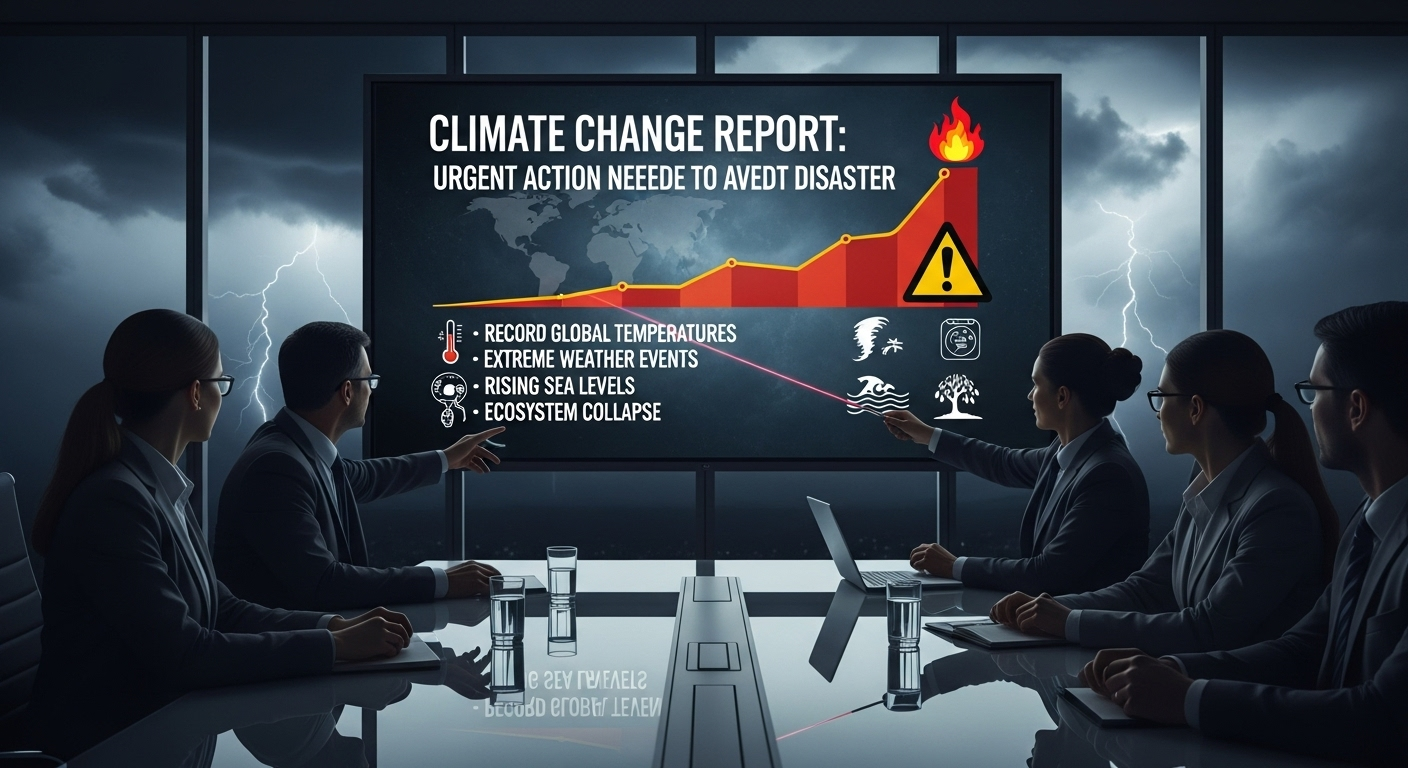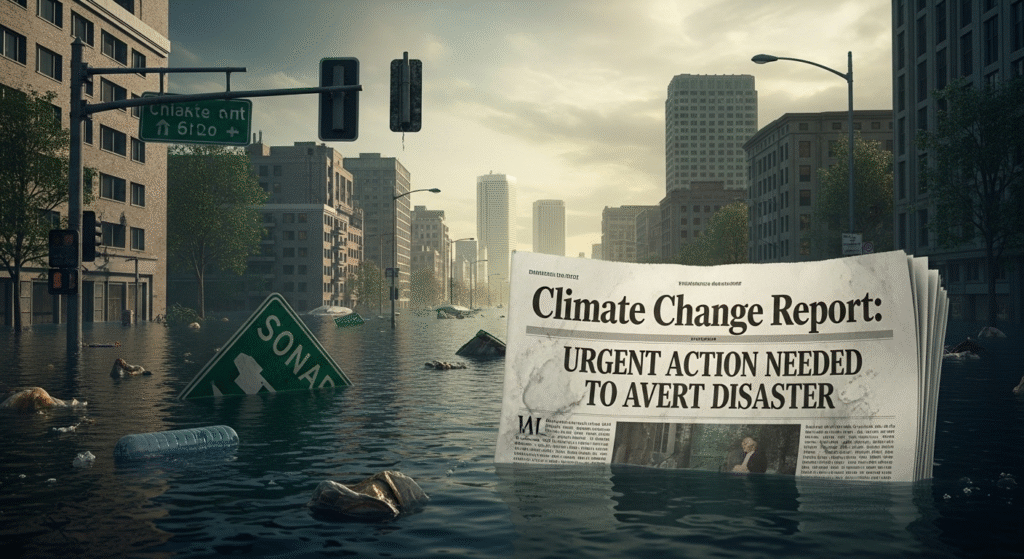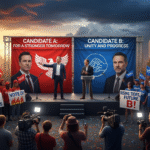Okay, let’s be real. Another climate change report. You might be thinking, “Ugh, not again.” I get it. We’re bombarded with information, and sometimes it feels like nothing’s changing. But here’s the thing: the latest reports aren’t just more of the same. They’re flashing red lights, sirens blaring, and a cosmic two-by-four whacking us upside the head. Ignoring them isn’t an option anymore.
I initially thought, ‘Oh great, more doom and gloom.’ But after actually digging into the details, specifically the economic impacts spelled out in the IPCC’s latest assessment (you can find summaries all over the place, for example, on Wikipedia), I realized it’s not just about polar bears anymore (though, let’s be honest, saving the polar bears is still pretty important!). It’s about our livelihoods, our economies, and the very stability of our societies. Think about it this way: extreme weather events are already costing us billions. And that’s just the beginning.
The Economic Tsunami: Climate Change’s Financial Impact

Here’s the part that should wake everyone up, from CEOs to soccer moms: climate change is coming for your wallet. Increased droughts and floods decimate agricultural yields, driving up food prices. Coastal communities face rising sea levels, leading to property damage and displacement. And extreme heat reduces productivity, especially in outdoor industries. So, what happens if we don’t take action? The Climate Crisis Updates: Tracking Extreme Weather Events and Policy Changes and the long-term economic forecasts paint a rather grim picture. Think supply chain disruptions on steroids. Imagine inflation that makes today’s prices look like a bargain. It’s not a pretty scenario.
But, and this is a big but, it’s not too late. We can still mitigate the worst effects. The key, as the reports emphasize, is urgent action. We need to transition to a low-carbon economy, invest in renewable energy, and implement policies that incentivize sustainable practices. It won’t be easy, and it will require significant investment, but the cost of inaction is far greater. Actually, that’s not quite right – the cost of inaction is immeasurable.
Understanding the Science: Why “Belief” Doesn’t Matter
The frustrating thing about this topic is that it’s still treated as a matter of opinion. It’s not. The science is clear. The vast majority of climate scientists agree that the Earth is warming, and that human activities are the primary cause. I’ve got to admit, this part fascinates me. It’s like we’re arguing about whether the sky is blue while standing outside on a sunny day. The evidence is all around us.
Of course, there are uncertainties. Climate models aren’t perfect, and predicting the future is inherently difficult. But that doesn’t mean we should ignore the overwhelming consensus. As the reports emphasize, the risks are too great to ignore. We need to act based on the best available science, even if that science isn’t perfect. And speaking of acting, have you ever wondered how cloud services can help improve the environment? They actually do, you can find more on how in Amazon CloudFront Simplifies the Delivery and Security of the Web Application with a New User-Friendly Interface – Amazon Web Services .
Individual Actions: More Than Just Recycling
Okay, so governments and corporations need to act. That’s a given. But what about us, the average citizens? What can we do? The answer is: more than you think. Yes, recycling is important. So is reducing your carbon footprint by driving less, eating less meat, and conserving energy. But individual actions alone aren’t enough. We also need to advocate for change. We need to support policies that promote sustainability. We need to hold our leaders accountable. And, frankly, we need to talk about this more.
Think about it this way: a single drop of water doesn’t seem like much. But millions of drops can carve canyons and power turbines. Our individual actions, when combined, can create a powerful force for change. We need to embrace that power.
And here’s a thought—it might be worth researching the sustainable practices implemented by platforms like Crazy Games. While gaming might seem unrelated, many tech companies are pushing for carbon neutrality. They could offer valuable insights.
Moving Beyond Denial: Embracing Solutions
One of the biggest obstacles to addressing climate change is denial. Whether it’s outright denial or a more subtle form of downplaying the problem, it prevents us from taking the necessary steps. I keep coming back to this point because it’s crucial. We need to move beyond denial and embrace solutions. And there are plenty of solutions out there. Renewable energy technologies are becoming more efficient and affordable. Sustainable agriculture practices can help us feed the world without destroying the planet. And innovative financing mechanisms can help us mobilize the resources needed to transition to a low-carbon economy.
The challenge isn’t a lack of solutions. It’s a lack of political will and a lack of public awareness. We need to change that. We need to demand action from our leaders. We need to educate ourselves and others about the solutions. And we need to create a sense of urgency that compels us to act. Now.
FAQ: Addressing Your Climate Change Concerns
Why should I care about climate change when there are other pressing issues?
That’s a fair question. It’s not about prioritizing climate change over other issues. It’s about recognizing that climate change exacerbates all other issues. Poverty, inequality, food security, public health – all are made worse by climate change. Addressing climate change is not just an environmental imperative; it’s a humanitarian one. And when we address climate change, we are indirectly helping fix those other important issues too!
How do I know if the climate change reports are accurate?
Climate change reports, like those from the IPCC, are based on the work of thousands of scientists from around the world. These scientists use a variety of data sources and modeling techniques to assess the current state of the climate and project future changes. The reports undergo rigorous peer review to ensure their accuracy and objectivity. While no scientific report is perfect, these reports represent the best available understanding of climate change.
What if acting on climate change hurts the economy?
The idea that addressing climate change will hurt the economy is a common misconception. In fact, transitioning to a low-carbon economy can create new jobs, stimulate innovation, and improve our overall quality of life. The renewable energy sector, for example, is growing rapidly and creating millions of jobs worldwide. Furthermore, the cost of inaction – the cost of dealing with the impacts of climate change – is far greater than the cost of action.
What can one person really do about such a massive problem like climate change?
It’s easy to feel overwhelmed by the scale of the problem, but individual actions do matter. By reducing your carbon footprint, advocating for change, and supporting sustainable businesses, you can make a difference. Remember, collective action starts with individual actions. And don’t underestimate the power of your voice. Talk to your friends, family, and neighbors about climate change. Encourage them to take action. Together, we can create a powerful movement for change.
Ultimately, the climate change reports aren’t just a warning; they’re a call to action. A call to action for governments, corporations, and individuals. A call to action for a sustainable future. We need to answer that call before it’s too late.



